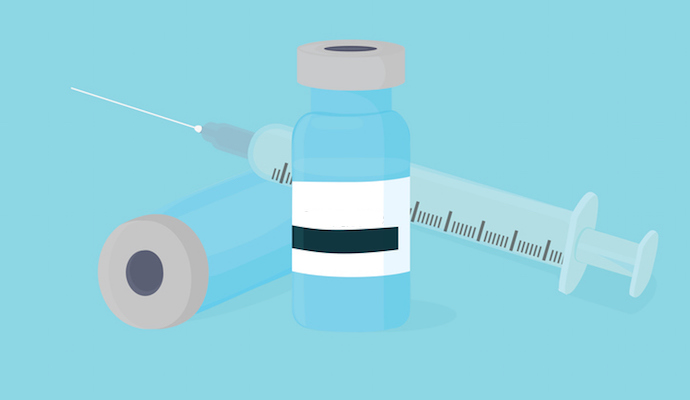Study Reveals Myocarditis Due to COVID-19 Vaccine Subsides Quickly
Data analytics reveals the rare COVID-19 vaccine side effect of myocarditis appears to subside quickly.

Source: Getty Images
- According to data analytics from a recent study, instances of myocarditis due to the COVID-19 vaccine are usually mild and subside quickly.
Myocarditis has been noted as a rare side effect of the COVID-19 vaccine in adolescent and young adult populations, particularly males.
Study leaders Jane Newburger, MD, MPH, at Boston Children’s Hospital, and first author Dongngan Truong, MD, at the University of Utah and Primary Children’s Hospital (Salt Lake City) found that symptoms of the condition are typically mild with a fast clinical recovery. However, researchers recommend continued monitoring of patients for possible long-term effects.
“We found that teens and young adults who develop myocarditis following COVID-19 vaccination generally have mild symptoms that improve quickly,” Newburger said in a press release.
“This rare complication of vaccination should be balanced against the greater risks of myocarditis, hospitalization, and other complications that occur with COVID-19 infection.”
The retrospective study involved 26 pediatric centers across the United States and Canada. Conducting data analytics, the researchers examined the records of 139 patients aged 12 to 20 who had suspected myocarditis within 30 days of COVID-19 vaccination.
Ninety-one percent of the cases occurred in males, and 98 percent were associated with the COVID-19 vaccine. Almost every patient reported chest pain while 32 percent had a fever and 27 percent experienced shortness of breath.
The symptom began on average two days after vaccination, with patients remaining in the hospital for an average of two days. Of the 97 percent who had MRI imaging of their hearts, 77 percent had evidence of injury or inflammation of their heart muscle.
Additionally, 19 percent had weakened left-ventricular pumping function. However, the function normalized in all 25 patients who had follow-up assessments. The data indicated that no patients needed mechanical support, only seven had serious heart arrhythmias, and just two received drugs to boost their heart function.
The authors added that the study was limited by its retrospective nature. None of the patients had heart biopsies to diagnose myocarditis definitively, and medical decisions regarding treatment were at the discretion of local clinicians. Also, because patients were seen at academic medical centers, their symptoms could have been worse than average.
“Findings of this study provide reassurance that youth who develop myocarditis after COVID-19 vaccination generally do well clinically, although long-term follow-up will be important to chart the course of recovery,” Newburger said.
“Future research is needed to understand what factors makes some youth susceptible to this rare reaction to vaccination and how heart muscle injury occurs.”
By determining the factors that put adolescents and young adults at higher risk for this condition, researchers can pursue preventive care to improve population health.
